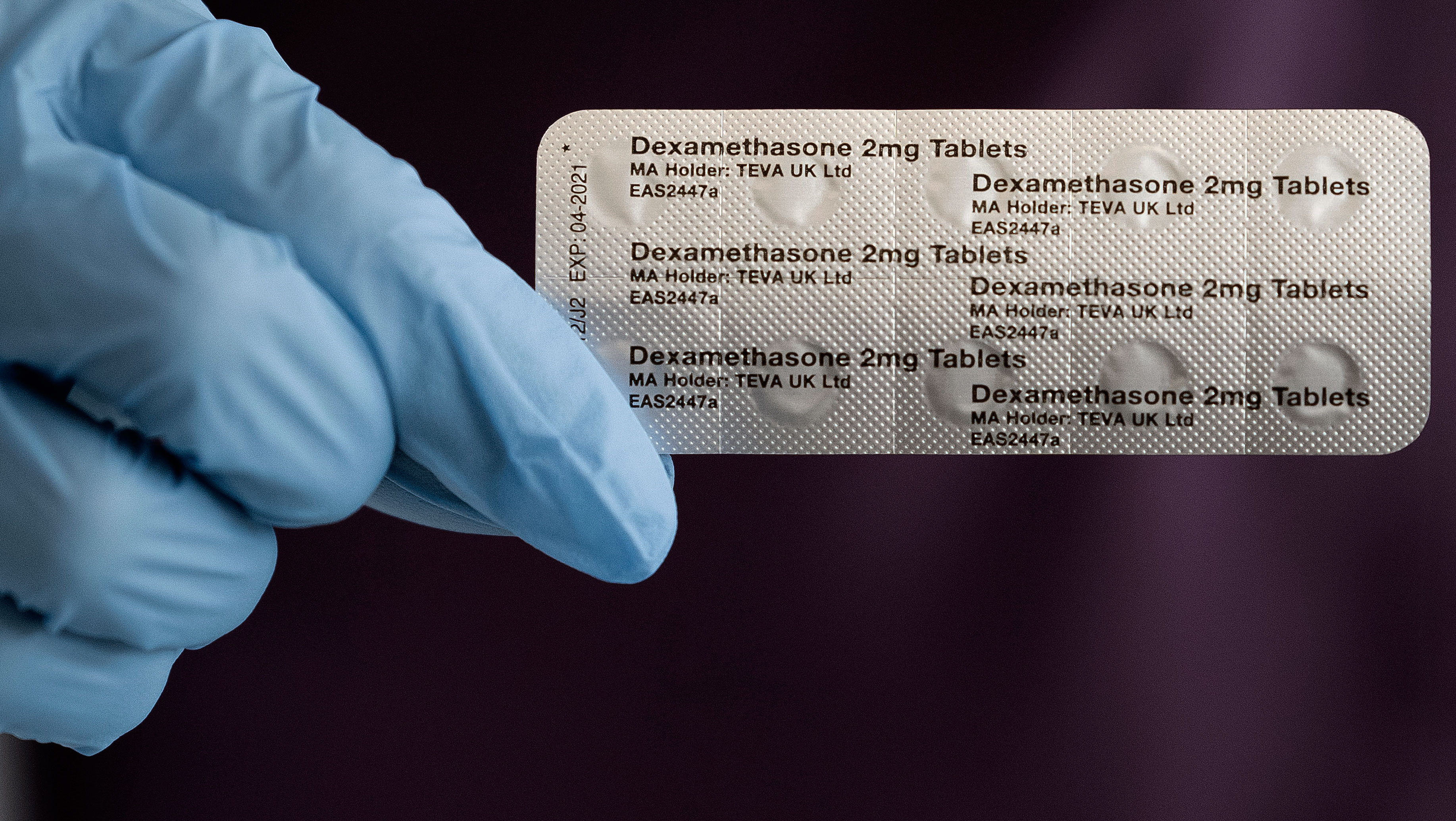Dexamethasone: how a 50p steroid saves one in three coronavirus patients
The 60-year-old arthritis drug has been described as a ‘breakthrough’ treatment for Covid-19

A free daily email with the biggest news stories of the day – and the best features from TheWeek.com
You are now subscribed
Your newsletter sign-up was successful
In the past few months, doctors have experimented with countless drugs in a desperate attempt to save the lives of patients with Covid-19. Until now, there was little evidence that any of them made much difference.
Innovative ebola therapies and designer drugs for people with HIV are among the treatments that have been pressed into service - but a new trial has found that the most effective by far is a cheap 60-year-old steroid used to treat arthritis.
“Dexamethasone is the first drug anywhere in the world that’s been found to reduce mortality from Covid-19,” reports New Scientist.
The Week
Escape your echo chamber. Get the facts behind the news, plus analysis from multiple perspectives.

Sign up for The Week's Free Newsletters
From our morning news briefing to a weekly Good News Newsletter, get the best of The Week delivered directly to your inbox.
From our morning news briefing to a weekly Good News Newsletter, get the best of The Week delivered directly to your inbox.
Boris Johnson has hailed the discovery as “a remarkable British scientific achievement”, while World Health Organization chief Tedros Adhanom Ghebreyesus described it as a “lifesaving scientific breakthrough”.
How effective is dexamethasone?
According to researchers, a ten-day course of dexamethasone was found to reduce deaths from Covid-19 by a third among people on ventilators and by a fifth among patients receiving oxygen but not ventilation.
“Half of all Covid patients who require a ventilator do not survive, so cutting that risk by a third would have a huge impact,” says BBC health correspondent Fergus Walsh.
A free daily email with the biggest news stories of the day – and the best features from TheWeek.com
In response to the findings, the UK government yesterday announced that the steroid was being made the standard treatment for Covid-19 in NHS hospitals.
How does it work?
Dexamethasone, which was developed in 1957, “is used to reduce inflammation in various conditions, including skin diseases, allergies and asthma”, say New Scientist.
According to ITV News, “the drug is also used in end-of-life care and can work to prevent the immune system from destroying blood platelets in people with blood disorders”.
These established uses may help to explain why the steroid is effective against Covid-19. The virus can cause inflammation of tissue in the lung and, in extreme cases, a “cytokine storm” - a dangerous overreaction of the immune system.
Dexamethasone “appears to help stop some of the damage that can happen when the body’s immune system goes into overdrive as it tries to fight off coronavirus”, says the BBC.
However, the drug does not have any beneficial effect for milder cases of the virus, nor does it prevent infection.
–––––––––––––––––––––––––––––––For a round-up of the most important stories from around the world - and a concise, refreshing and balanced take on the week’s news agenda - try The Week magazine. Start your trial subscription today –––––––––––––––––––––––––––––––
How much does it cost?
Dexamethasone is both cheap and widely available.
At 50p per dose, “it costs in the order of £5 for a complete course of treatment in the NHS and substantially less than $1 in other parts of the world”, says Martin Landray, a professor of medicine and epidemiology at Oxford University who worked on the drug trial.
“The government has been stockpiling dexamethasone since March in case the trials were successful,” says The Telegraph. “There are already supplies for 200,000 patients, and enough to cope with any second wave of the virus.”
How was the breakthrough made?
In most of the world’s hospitals, the early days of the pandemic saw a wide variety of drugs being “given to those most in need and administered on an ad hoc basis while the doctors hoped”, says The Times science editor Tom Whipple. “Patients lived, patients died. And, afterwards, we were none the wiser.”
The NHS, however, took a different approach. “In a logistical feat no less impressive than the Nightingale hospitals, more than 10,000 patients across the country were recruited by Oxford University into a proper trial.”
Other treatments assessed for their potential to treat Covid-19 include convalescent blood plasma collected from patients who have recovered from the virus, as well as remdesivir and the malaria drug chloroquine.
Remdesivir has been found to increase the speed of recovery in some patients, but has no significant effect on mortality rates. Chloroquine, a favourite of US President Donald Trump, was found to do more harm than good.
–––––––––––––––––––––––––––––––For a round-up of the most important stories from around the world - and a concise, refreshing and balanced take on the week’s news agenda - try The Week magazine. Start your trial subscription today –––––––––––––––––––––––––––––––